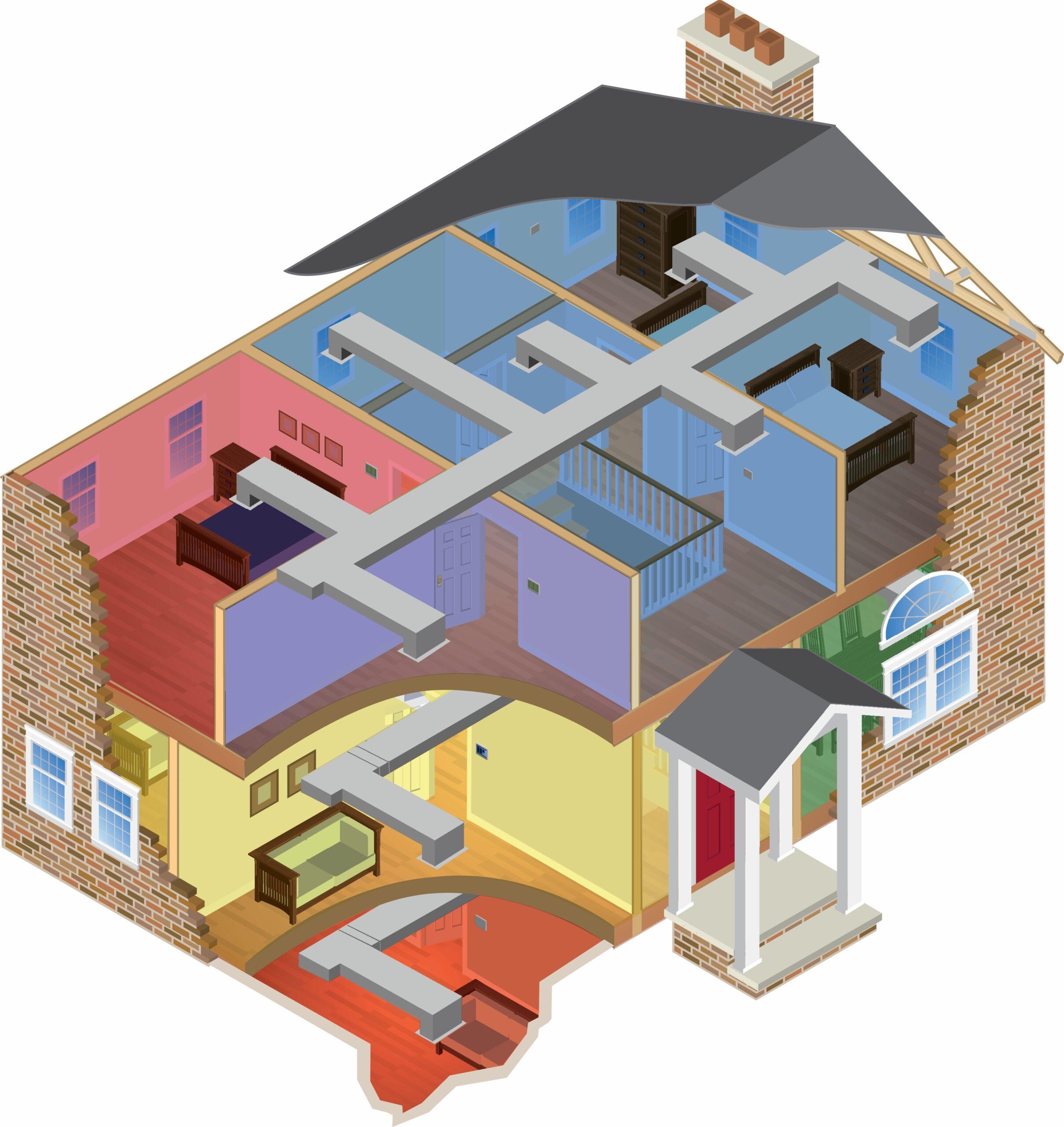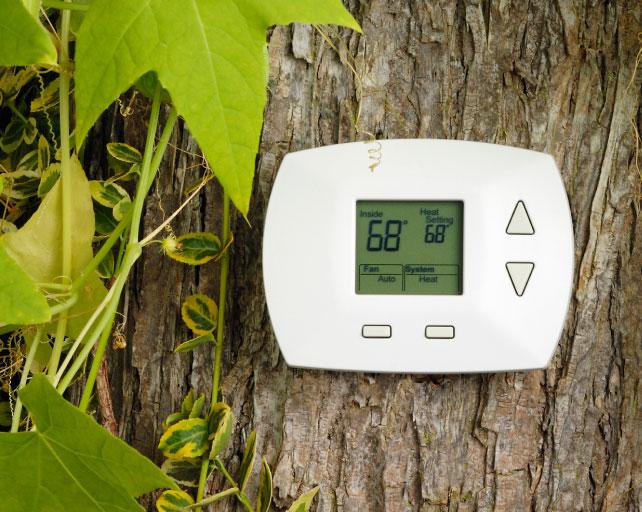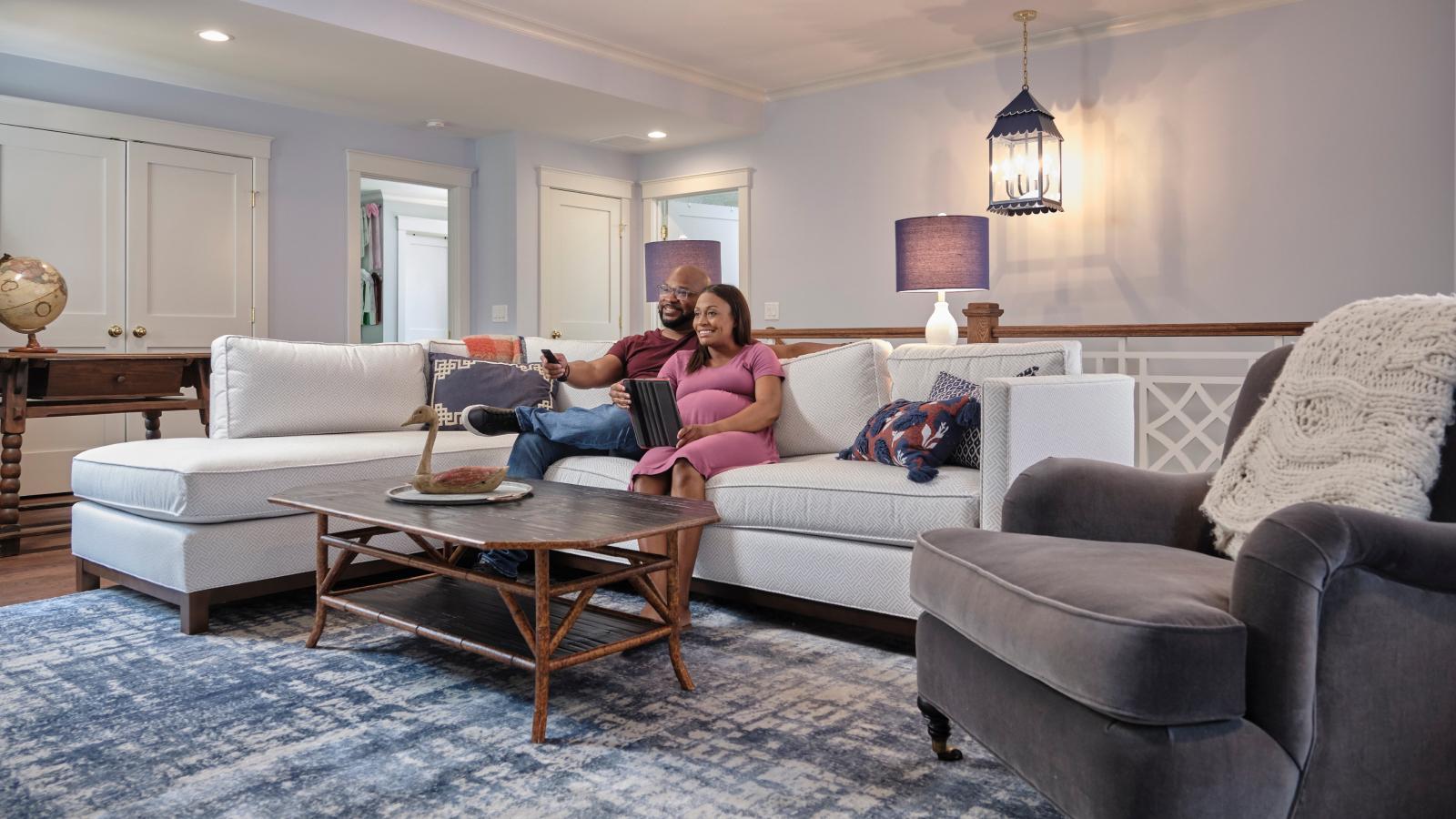What You Need to Look for in HVAC When Purchasing a New Home
Know what to look for when buying a new hvac system or during the home-buying process.
Buying a new home is exciting and represents the start of a new chapter. When it comes to purchasing a new home, one of the most important aspects to consider is the home’s Heating, Ventilation, and Air Conditioning (HVAC) system. HVAC plays an important role in maintaining your comfort and indoor air quality. It's also a substantial investment, so making an informed decision about the HVAC system in your prospective new home is essential, and failing to do so can result in costly home heating and cooling expenses, and maybe even buying a new HVAC system.
The Importance of HVAC in Your New Home
Your HVAC system is responsible for regulating the temperature, humidity, and air quality within your home. Whether it's keeping you warm during the winter or cool during the scorching summer months, your HVAC system is integral to your comfort. Therefore, it's essential to thoroughly evaluate the HVAC system in a prospective new home to ensure it meets your needs and expectations.
A thorough inspection of your heating and air conditioner equipment before buying a house can significantly impact your future comfort, financial well-being, and overall satisfaction with your new home. Without a thorough inspection, you might unknowingly inherit an aging or malfunctioning system that could lead to hefty repair or replacement costs shortly after moving in.
Identifying issues like damaged equipment, inefficient systems, or inadequate insulation can give you the leverage needed during negotiations and help you make an informed decision about your potential new home. Ultimately, an HVAC inspection ensures that the heart of your home operates optimally, keeping you comfortable and your energy bills manageable for years to come.
Your HVAC Inspection Guide
Here are some things to consider when it comes to your new home’s heating and cooling system, and basics to know before you buy.
Age and System
One of the first things to consider when evaluating the HVAC system in a new home is its age and type. Older HVAC systems may not be as efficient as newer models, and they could be more prone to breakdowns and higher energy consumption. HVAC systems typically consist of a combination of components, including a furnace, air conditioner, heat pump, or other heating and cooling elements. Knowing the age and condition of these individual components is crucial.
Older systems may also use outdated refrigerants that are harmful to the environment and expensive to replace. Depending on the year of your HVAC installation, it's essential to inquire about its maintenance history and whether it has been well-maintained over the years. Regular maintenance can extend the lifespan of an HVAC system, but neglect can lead to premature failure.
Damage
During your inspection, be on the lookout for any signs of damage to the HVAC equipment. Check for rust, cracks, dents, water stains, or any other visible issues. Even minor damage can indicate potential problems that might require costly repairs or replacement shortly after you move in. A thorough inspection by an HVAC technician is advisable to assess the system's overall condition and identify any hidden issues.
Noises
Listen for unusual noises when the HVAC system is running. Strange sounds such as banging, clanking, hissing, or rattling can be indicators of internal problems. These noises may signal issues with the blower motor, compressor, or other critical components. Identifying these problems early can save you from unexpected repair expenses down the line.
Ductwork
It can be costly to install a new HVAC system with ductwork or even to use existing ductwork, so this is an important part of the home inspection process. The ductwork in your home plays a crucial role in distributing heated or cooled air to different rooms. Inspect the ductwork throughout the home for any gaps, loose connections, or signs of condensation. Leaky ducts can lead to energy wastage, reduced efficiency, and uneven temperature distribution in your home. Properly sealed and insulated ducts are essential for efficient HVAC performance.
Insulation
Ask about the amount of insulation in the house and when it was installed. Adequate insulation is vital for maintaining a comfortable indoor temperature and reducing the workload on your HVAC system. Older homes may have insufficient insulation, which can result in higher energy bills and discomfort as your heating and air conditioner need to run more with less efficiency. Ensure that the home has sufficient insulation to meet your heating and cooling needs.
Size
Determining the right size of HVAC system for your home is crucial for efficiency and comfort. An HVAC contractor or technician can perform calculations that take into account factors like the size of your home, tree coverage, sun exposure, and the quality of insulation. An undersized HVAC system will struggle to maintain your desired indoor temperature, leading to increased energy consumption and reduced comfort. Conversely, an oversized system can cycle on and off frequently, which can also decrease efficiency and increase wear and tear on the equipment.
Energy Efficiency
Efficiency is a critical factor when evaluating HVAC systems. An efficient system can save you money on energy bills while reducing your environmental impact. Look for systems with high Energy Star ratings, as they meet stringent energy efficiency standards. In addition to ratings, size matters when it comes to energy efficiency. A heat pump or air conditioner that's too small for your home will work harder and consume more energy to heat or cool your space, diminishing its effectiveness and efficiency.
Additional HVAC Considerations
In addition to the factors mentioned above and often covered in a home inspection, there are a few other important considerations when assessing the HVAC system in a new home. You may need to have conversations with the selling agent or current homeowner to get accurate information that will better inform your purchase decision.
Annual Maintenance
Ask the current homeowner if they have been performing annual tune-ups on the home’s heating and cooling system. Regular maintenance ensures that your air conditioner and furnace run at their optimum efficiency. It also helps identify and address minor issues before they escalate into costly repairs. If the system has not been well-maintained, it may be more prone to breakdowns and may not operate efficiently.
Total Costs
If you do need to purchase a new HVAC for your new home, consider the total costs associated with the HVAC system. This includes not only the upfront purchase price but also ongoing energy costs, maintenance expenses, and potential repair or replacement costs in the future. While a more efficient HVAC system may have a higher initial cost, it can often pay for itself through energy savings over time. If you purchase an older home that needs an HVAC upgrade, you might consider buying a new hvac system before you move in to help with utility costs and energy efficiency.
Here are a few things to consider when thinking about whether to repair or replace–and maybe the HVAC system replacement can be included in your house’s closing agreement:
Cost to Install HVAC System With Ductwork
The cost of installing an HVAC system with ductwork can vary depending on factors such as home size and the complexity of the installation. It is recommended to consult with HVAC professionals to obtain accurate estimates tailored to your specific needs and requirements. A well-designed and properly installed HVAC system with ductwork can significantly improve both the comfort and energy efficiency of your home.
Cost to Install Central Air With Existing Ductwork
The cost of installing central air with existing ductwork can vary based on factors such as the size of the home, the condition of the existing ductwork, and the specific requirements of the installation. It is advisable to consult with HVAC professionals who can assess your current ductwork and provide accurate estimates tailored to your situation. By utilizing existing ductwork, you may potentially save on installation costs compared to a complete system overhaul. However, it's important to ensure that the ductwork is in good condition and compatible with the new central air system for optimal performance and efficiency.
Heating and Air Conditioning Repair
An older HVAC system can lead to increased costs in heating and air conditioning repairs, as well as energy efficiency losses. As systems age, components can wear out or become less efficient, resulting in more frequent breakdowns and the need for repairs. Additionally, outdated technology and lower energy efficiency ratings can lead to higher energy consumption and increased utility bills. Upgrading to a newer, more efficient HVAC system can help minimize repair costs and reduce energy waste, providing long-term savings and improved comfort. Consulting with HVAC professionals can provide insights into the benefits of upgrading your older system.
HVAC Contractor
Choosing the right HVAC contractor is essential when installing or maintaining your system. A reputable and experienced contractor can ensure that the system is correctly sized, installed, and maintained. Ask for recommendations, check reviews, and verify licensing and certifications when selecting an HVAC contractor.
Your home’s Heating, Ventilation, and Air Conditioning (HVAC) system is an important component of any new home purchase and can have a huge impact on your wallet and your comfort. By carefully assessing the age, condition, efficiency, and other factors related to the HVAC system, you can know more about the HVAC system in the home you are purchasing. Contact your local Trane Comfort Specialist to schedule your HVAC inspection and maintenance before you buy your next home.




